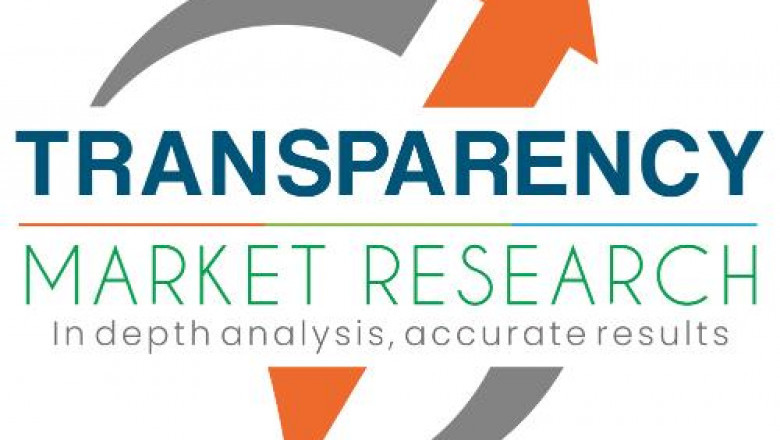views
As the marine industry sails into a new era of environmental consciousness and sustainability, battery packs for hybrid and full electric propulsion systems have emerged as a key driver of transformation. With the global market valued at US$ 977.6 Mn in 2023, it is projected to grow at a CAGR of 8.7% from 2024 to 2034, eventually reaching US$ 2.4 Bn by 2034. This growth trajectory signals a strong shift toward cleaner, greener maritime transportation solutions.
Why Electrification is the Future of Maritime Propulsion
The growing emphasis on reducing greenhouse gas (GHG) emissions has pushed the marine sector to explore alternatives to traditional fossil fuels. As of 2022, international shipping accounted for nearly 2% of global energy-related CO₂ emissions, according to the International Energy Agency (IEA). With decarbonization targets such as the Paris Agreement, the industry aims to reduce carbon emissions by at least 15% by 2030.
Electric propulsion systems, powered by high-density battery packs, are proving instrumental in this shift. Not only do they eliminate exhaust emissions into marine ecosystems, but they also reduce fuel consumption and operational costs over the vessel's lifetime. These systems are particularly ideal for short-range vessels such as tugboats, ferries, and service operation vessels (SOVs).
Regulatory Pressures Drive Market Expansion
The implementation of stringent emission regulations across global maritime jurisdictions is significantly accelerating the adoption of hybrid and electric propulsion systems. Notable among these are:
- IMO Tier III standards
- Energy Efficiency Design Index (EEDI)
- Emission Control Areas (ECAs)
In 2022, the California Air Resources Board (CARB) further tightened its regulations on commercial harbor craft to reduce both diesel soot and nitrogen oxide emissions. As governments and regulatory bodies enforce these mandates, shipping companies are being compelled to transition toward eco-friendly propulsion technologies.
Industry Players at the Helm of Innovation
Leading companies in the marine battery pack space are doubling down on innovation, integration, and efficiency. Key players such as Corvus Energy, Eco Marine Power, Rolls-Royce plc, NIDEC CORPORATION, and RELiON Batteries are investing in:
- Advanced Battery Energy Storage Systems (BESS)
- Hybrid propulsion integrations
- Power control solutions that combine diesel gensets with battery packs
These innovations aim to boost energy density, reduce the cost per kilowatt-hour, and extend the lifespan of battery systems, making them viable even for larger vessels and high-powered maritime applications.
Recent developments include:
- May 2024: JMS Sunshine, the world's first LNG hybrid tugboat, began operations in Singapore with a 904 kWh battery.
- March 2024: Corvus Energy secured a contract to provide BESS for Magellan Discoverer, the first hybrid diesel-electric vessel in South America.
Regional Outlook: Asia Pacific Takes the Lead
The Asia Pacific region is spearheading the marine electrification trend. In 2023, it accounted for the largest market share, and this leadership is expected to continue through 2034. A strong manufacturing base, increasing shipbuilding activity, and proactive environmental policies are driving adoption across nations such as China, India, and Japan.
For instance:
- In January 2024, Sweden’s AtoB@C Shipping launched Ecomar, a plug-in hybrid vessel built in India.
- In Europe, NAV Engineering & Technology is building a fleet of hybrid-electric crew transfer vessels (CTVs) aimed at offshore windfarm operations.
Segmentation Insights: Power Ratings and Vessel Types
The battery pack market is segmented by power rating, RPM, propulsion type, and vessel type, offering tailored solutions for a variety of applications.
By Power Rating:
- Up to 1 MW
- 1 MW–2 MW
- 2.1 MW–3.5 MW
- Above 3.5 MW
By Propulsion Type:
- Hybrid
- Full Electric
By Vessel Type:
- Tugboats & OSVs
- Ferries
- Defense Vessels
- Yachts
- Cruise Ships
Battery packs for vessels above 3.5 MW and hybrid propulsion systems are currently witnessing heightened interest due to their performance efficiency and regulatory compliance capabilities.
The Path Ahead: A Greener Marine Industry
As global pressure to decarbonize intensifies, battery-powered marine propulsion is no longer a futuristic concept—it’s a present-day imperative. From harbor tugs to luxury yachts, stakeholders are investing in technologies that promise zero-emission operations and lower total cost of ownership.
The future will likely see a broader rollout of battery-electric vessels, deeper collaboration among OEMs, and the emergence of integrated green ports capable of supporting shore power and battery charging infrastructure.
In conclusion, the Battery Pack for Marine Hybrid & Full Electric Propulsion Market is on a clear path of exponential growth, driven by innovation, regulation, and the global demand for a cleaner maritime future. Stakeholders who invest early in this transformation stand to gain a strategic advantage in a rapidly evolving global maritime ecosystem.






















Comments
0 comment